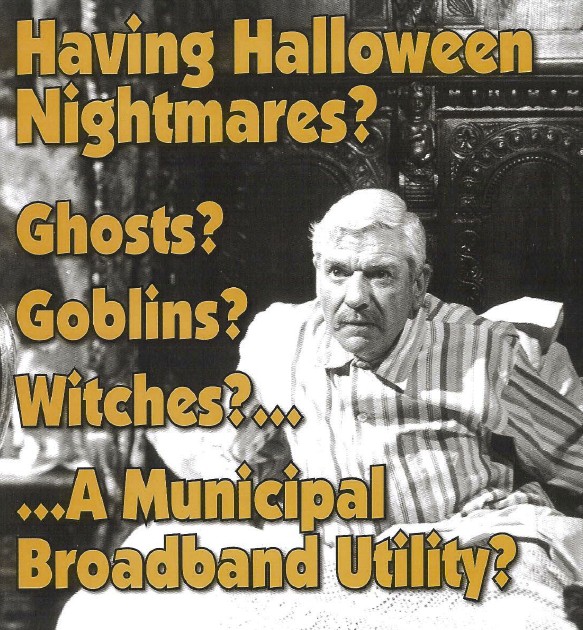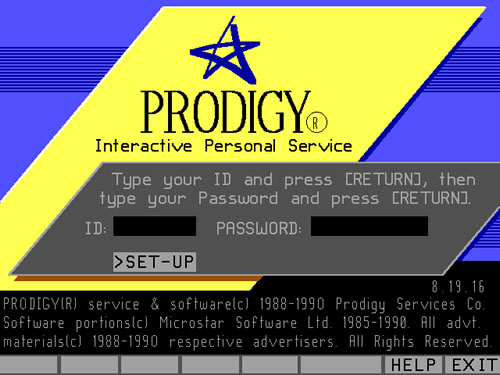We have the complete video of last week’s Revenue Laws Study Committee meeting which featured the introduction of a draft bill that would dramatically restrict any entrant into North Carolina’s broadband marketplace unless they were a private industry provider. The de-facto municipal broadband ban legislation comes courtesy of retiring Senator David ‘Fiber is Obsolete’ Hoyle (D-Gaston), who sprung the proposed bill minutes before debate was to begin. Despite the fact opponents (and consumers) were left unprepared to push back against Hoyle’s anti-consumer legislation, a few legislators and citizens rallied to the cause.
[flv width=”640″ height=”380″]http://www.phillipdampier.com/video/NC Rev Laws Study Comm 5.5.10-1.mp4[/flv]
North Carolina Revenue Laws Study Committee Meeting (May 5, 2010 — 47 minutes)
A Viewer’s Guide
Senator Daniel G. Clodfelter (D-Mecklenburg) wants both sides to “turn the volume down,” apparently not appreciating the fact a retiring senator pushing through an anti-consumer telecommunications company dream-come-true draft bill would likely provoke a consumer backlash.
Clodfelter is surprised the debate has become so polarized. It shouldn’t be, considering this debate is hardly a new one. Consumer advocates have seen providers use the same road map to enact anti-consumer municipal broadband prohibitions in more than a dozen states. The same talking points and arguments appear every time this issue comes up. Consumers are fed up with the corporate protectionism these bills represent, and they become extremely angry when those elected to represent them instead represent the interests of big corporate telecom companies.
Clodfelter’s ultimate vote spoke louder than his pleas for civility — he voted for the draft that guarantees North Carolina consumers will continue to pay high prices for telecommunications services.
Senator David Hoyle’s eyes rarely left his carefully prepared talking points. Perhaps that’s because he’s not as familiar with the issues as he claims to be. When a legislator is forced to keep his eyes on his remarks, seeming to stumble through several important points, it suggests unfamiliarity with the issues. That’s hardly a surprise when legislation is introduced by a telecom-friendly legislator who knows only as much as the accompanying information packet of talking points allows.
We saw that first hand last year with Ty Harrell, who introduced legislation that he so fundamentally didn’t understand, he was later forced to repudiate his own bill. Watch Hoyle and ask yourself — is this a legislator who understands municipal broadband, or is this a senator carrying water for big telecom?
Hoyle’s testimony contained many interesting comments we’d like to rebut:
“The level playing field aspect is gone.” He’s got that right. His proposed draft bill mires municipal providers with terms and conditions no private provider ever endured. Where is your referendum about whether or not you wanted to pay Time Warner Cable for dozens of channels you never asked for, and don’t want? Where is your referendum about whether or not you want the incumbent cable and phone companies to continue providing service in your town? Does the phone company need to hold a referendum to replace phone wiring on the poles? No? Then why does Hoyle’s bill demand referendums for municipal system repairs and upgrades?

Rep. Luebke characterized Hoyle's proposal as premature and urged his colleagues to support further study on this issue
Hoyle misrepresented the financing of municipal broadband projects, most of which are not financed at the expense of every local taxpayer. His carefully crafted suggestion that citizens should vote for such projects is a nice concept, but remember incumbent providers can use unlimited amounts of money they’ve earned from overcharging you for years to bombard residents with misinformation. Meanwhile, your local government cannot spend a penny to rebut them. Is that a fair vote or one engineered to provide victory to incumbent providers?
Senator Hoyle suggested unnamed interests have said he has a vendetta against cities — that he doesn’t like cities. That’s an example of a politician constructing a false straw-man argument to shoot down. Of course his real “vendetta” is against North Carolina consumers. With Hoyle not seeking re-election, he doesn’t have to answer to them.
Hoyle brought up the sale of bankrupt Adelphia Cable’s systems to the local governments of Mooresville and Davidson, and then demagogued it with cherry-picked talking points, conflating an old, outdated cable system with construction of state-of-the-art fiber systems as proposed in communities like Salisbury.
Adelphia Cable’s founders and chief corporate executives are sitting in a federal penitentiary. A court found both John and Timothy Rigas guilty of more than a dozen counts of fraud and conspiracy in 2004, a decision largely upheld in 2008, and both continue to serve 12 and 17 year sentences respectively.
Every Adelphia Cable system put up for sale by the Bankruptcy Court was littered with problems. In San Diego, inspectors found more than 3,000 improperly grounded cable connections in customer homes. Company records were in chaos as well, and the result was major headaches for buyer Time Warner Cable.
The North Carolina Adelphia systems were not much different. The communities had been victimized twice by providers who delivered broken promises, fewer channels at higher prices, and bad service. When Time Warner Cable proposed to take control of the systems and wouldn’t meet the communities needs, Mooresville and Davidson decided to exercise right of first refusal and purchase the systems themselves.
What they found after closing the deal were the same kinds of problem Time Warner Cable and Comcast were dealing with in other former Adelphia communities. The difference is the cable companies just raised customers’ rates to defray the costs of cleaning them up. They also left many towns with cable systems built based on economy more than customer needs. With limited competition, where could dissatisfied subscribers go?
Mooresville and Davidson both faced:
A significant number of subscribers who stopped paying for service from Adelphia much earlier and faced no consequences or service suspension. When MI-Connection, the municipal provider, began billing for services rendered, they canceled. Of course, the sellers never disclosed the fact there were many non-paying customers getting service for free. When the towns purchased the systems, it assumed subscriber numbers provided represented paying customers. It turns out many weren’t.
Then there were more surprises:

Sen. Stein suggested legislation that could keep the United States behind in broadband adoption was of concern to him.
- Leamon Brice, Davidson town manager, told the Davidson News, “After the borrowing, but before the closing, Time-Warner, custodian of the system for one year, announced there were many more customers in the system than originally thought. As a result, the towns had to spend $12 million of the $80 million to buy those additional customers. This left less money for the upgrade of the system, so the towns borrowed an additional $12 million to complete the necessary improvements.”
- An economic crisis which is driving down subscriber rates for cable services nationwide.
- The early unavailability of a “triple play bundle” combining telephone, video, and broadband service on one bill. Bundling is the economic driver of today’s telecommunications industry, and the two communities were late to get in on it.
- The high cost of system upgrades, especially with a system administered by Adelphia, which let most of its cable properties fall into disrepair long before bankruptcy.
Although Hoyle called out both communities for their losses, his numbers don’t add up. He claimed the systems will lose $6.8 million dollars a year, based on one quarterly loss statement he chose to multiply by four. In fact, the communities are seeking a one time $6.4 million allocation in the 2010-11 budget year, of which Davidson’s share is $2 million, to make up for the losses associated with all of the drama surrounding the Adelphia system purchase and upgrades.
Hoyle ignored the potential for MI-Connection, now that the upgrades are near completion and the company has introduced an aggressive triple-play package. Revenues are up nearly 10 percent over the same period last year — an impressive result during an economic crisis. Most of that growth came from newly launched broadband and telephone services.
The system needs only a few thousand additional customers to erase the losses. Offering a compelling triple play bundled service package should help them achieve that goal.
Despite the difficulties associated with Adelphia’s legacy cable systems, most of the municipal broadband projects Hoyle seeks to stall are actually 100 percent fiber-based and are designed to service both residential and business customers with service far beyond what the local cable and phone companies are willing to provide.
The committee then heard input from speakers in the audience, with a two minute limit. Unfortunately, that was too long for at least some committee members who chatted audibly as speakers tried to make their points.
One of those speaking in favor of the proposed draft was Octavia Rainey, once again seated with the lobbyists from Time Warner Cable and AT&T. She arrived at the microphone with her practiced talking points.
After Rainey’s prior comments on this issue, we reached out to Ms. Rainey to get a better understanding of her point of view and establish a dialogue. When I attempted to speak with Rainey, she first hung up on me only to call back several minutes later to accuse me of being a “white supremacist,” even though I had revealed to her I also serve as a Human Relations Commissioner in Greensboro and fight against racial prejudice daily.
Such over-the-top accusations are not unheard of in this policy debate, particularly with some civil rights groups who attempt to shut down debate with accusations of bias when their public policy positions do not comport with the stated founding principles of that group. Usually, when this card is played, it comes when you’ve successfully called out the empty rhetoric and fact-challenged talking points most of these groups use to defend big telecom. Rainey is just another example of a well-meaning local community activist who has been duped by telecom astroturfing efforts, and AT&T’s financial involvement in causes helpful to her public profile don’t hurt either.
The litmus test for astroturf snowjob detection is simple:
- Will the constituents these individuals and groups claim to represent be well-served with a protected duopoly in broadband that prices service out of their reach?
- Has the group fully and publicly disclosed their financial contributions from telecommunications companies and the amounts given?
- Are there telecom company representatives serving on the board of the group?
Too often, following the money is all that’s required to understand the allegiance some groups and individuals have to adopting the telecom agenda.
At the end of the discussion, a vote was held and the draft bill passed. There were only two audible “no” votes — from Representatives Jennifer Weiss (D-Wake County) and Paul Luebke (D-Durham). I was told Senator Josh Stein (D-Wake County) also voted no, stating he did not “shout it out, but I definitely voted against the bill.”
The draft bill now goes to the House and Senate leadership to be assigned to committees. If it survives the committee process, it moves to the full House and Senate. I understand that leadership in both the House and Senate do not want anything controversial in the short session to follow, so let’s let them know nothing is more controversial than legislation that guarantees slow and expensive broadband from existing providers, indefinitely.
Make sure you let the North Carolina legislature know that now is not the time to ram through a provider-friendly municipal broadband bill from Senator Hoyle. Tell Speaker Hackney and President Pro Tempore Basnight the issue requires further study, and the bill should be referred back to appropriate committees for further review:
Speaker of the House Joe Hackney (D-Chatham, Orange, Moore) 919-733-3451 [email protected]
President Pro Tempore Marc Basnight (D-8 Coastal Counties) 919-733-6854 [email protected]


 Subscribe
Subscribe







